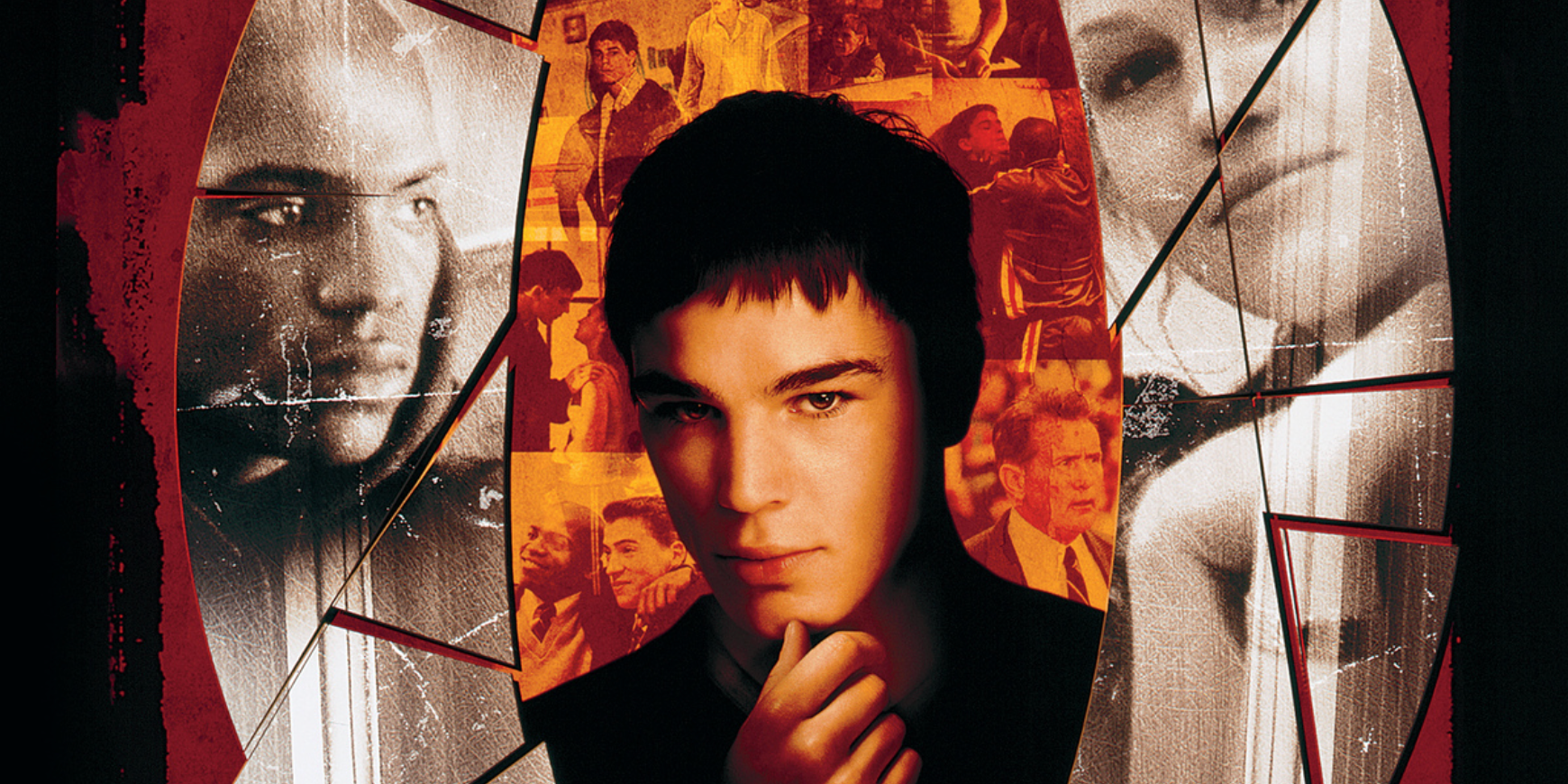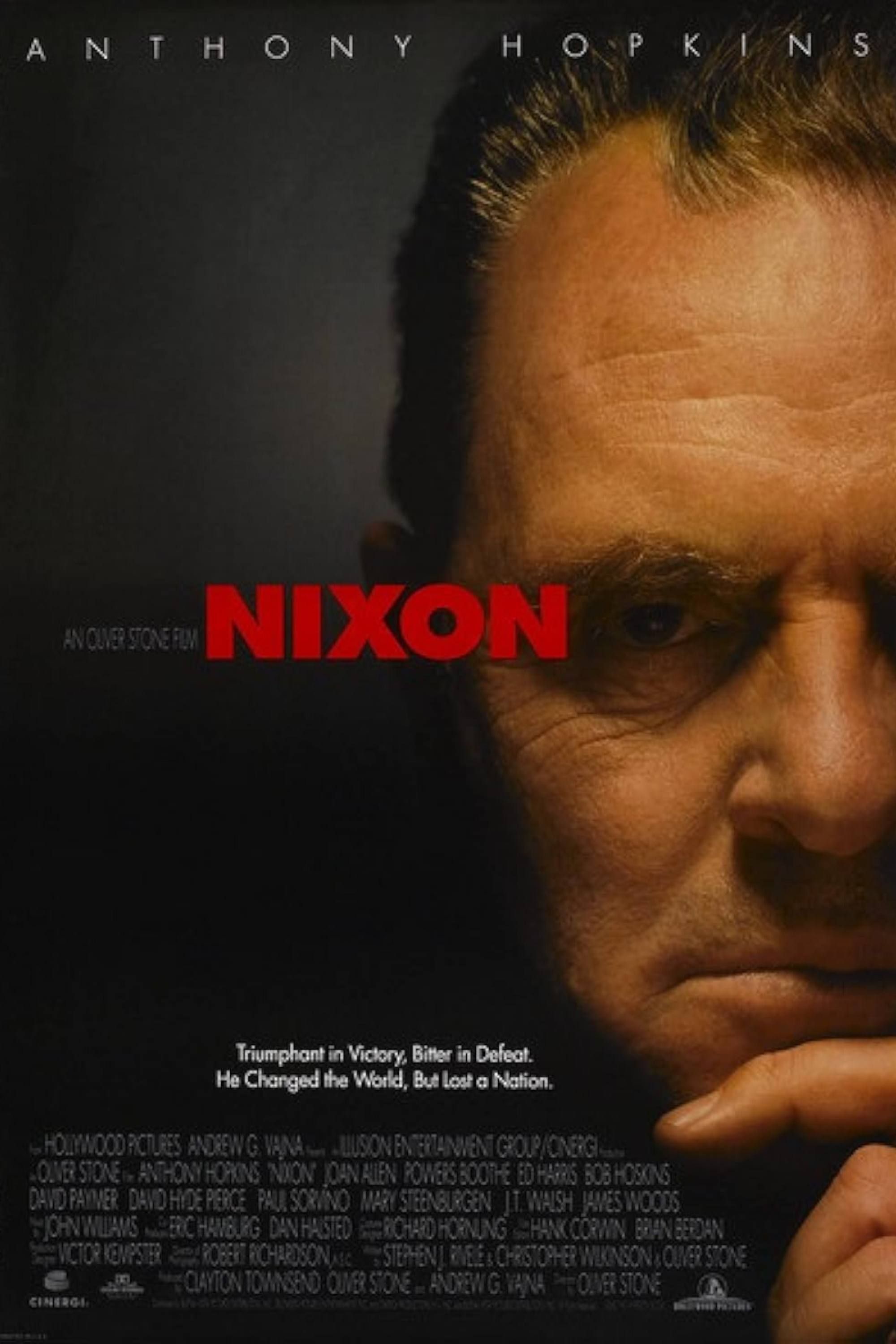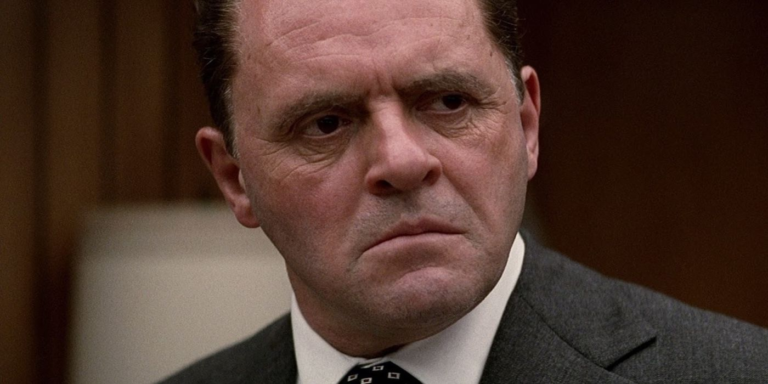Oliver Stone is a filmmaker who has never been a stranger to controversy, as he helmed several films about divisive events and figures in American history, including Salvador, The Doors, Platoon, Natural Born Killers, and Born On The Fourth Of July. Although Stone received both praise and criticism for his conspiracy-themed mystery thriller JFK, which posited its own theory about the assassination of John F. Kennedy, it would not be the last time that he directed a controversial film about the life of a United States President. Nixon starred Anthony Hopkins as Richard Nixon, whose political career ended in shame when he became the first president in the history of the United States to resign from office. Although the film received four Academy Award nominations, Nixon’s biggest fan was Roger Ebert, who said that Stone was “flavored by the greatest biography in American film history, Citizen Kane.”
‘Nixon’ Is More Than Just a Biopic
Nixon is not told in a sequential order of events, as Stone chooses to switch between different instrumental moments in life to examine the President’s troubled relationship with telling the truth. While it was ultimately his lies regarding the Watergate scandal that forced him to leave the presidency, Nixon was haunted by many controversial decisions, as he often felt like he was at a disadvantage because he wasn’t “likable.” Although the opening moments show Nixon in a less than favorable light, as he attempts to hold on to power by communicating with his Chief of Staff, H. R. Haldeman (James Woods), it is revealed that he came from a much more humble upbringing. Nixon’s life was traumatized by a family tragedy when he was younger, which created an adverse relationship with his mother (Mary Steenburgen). Although Nixon felt that he embodied the true spirit of the American people, he felt that he was constantly overshadowed by Kennedy, who bested him in the 1960 Presidential Election.

Related
“May the winds blow till they have wakened death!”
Ebert praised Hopkins’ performance as not being an “impersonation,” as he felt that the Academy Award-winning actor gave “a deep, resonant performance that creates a man instead of imitating an image.” Although Nixon is depicted as being ruthless as he attempts to divert blame for the break-in at the Watergate on different members of his party, it does imply that he was attempting to act with chivalry. Nixon’s predecessor, President Lyndon B. Johnson, was quite aggressive in getting the United States involved in the Vietnam War. While Nixon felt that Americans should return home, he also despised the notion of not having an “honorable peace,” and didn’t want to be remembered in history as the first American president to lose a war. Nixon’s complex feelings about the subject are explained in a brilliant sequence in which he speaks with a group of student protestors. The sequence takes place underneath the statue of Abraham Lincoln, in what feels like a clever homage to a similar moment involving Jefferson Smith (James Stewart) in Mr. Smith Goes To Washington.
Roger Ebert Compared ‘Nixon’ to ‘Citizen Kane’
Citizen Kane is often cited when discussing something of the highest quality, but Ebert felt that Stone approached the character of Nixon in a way similar to Orson Welles’ depiction of Charles Foster Kane. Like Kane, Nixon is an outsider born with nothing, and only achieves a position of power and influence by constructing a persona and not relenting in his ambition. Both Nixon and Kane are ultimately undone by their egos; while Kane was left dreaming about a childhood that was denied to him, Nixon is so obsessed with ensuring the records of his actions that his tapes are used against him when articles of impeachment are floated.
Nixon is more relevant than ever before, as it examines the consequences of a belligerent, narcissistic power-seeker sitting in the White House. In one of the film’s more unsettling scenes, Nixon, Haldeman, and Domestic Affairs Advisor John Ehrlichman (J.T. Walsh) discuss the possibility of contesting the results of the Presidential election, which could in turn inspire a civil war. Stone’s work may have been considered provocative, inflammatory, and cynical at the time that Nixon was first released, but thirty years later, it has proven to be more salient than ever.
Nixon is now available to stream on Prime Video in the U.S.

- Release Date
-
December 22, 1995
- Runtime
-
192 Minutes
- Director
-
Oliver Stone
- Writers
-
Oliver Stone, Christopher Wilkinson, Stephen J. Rivele

